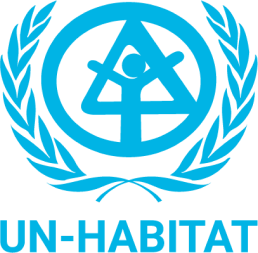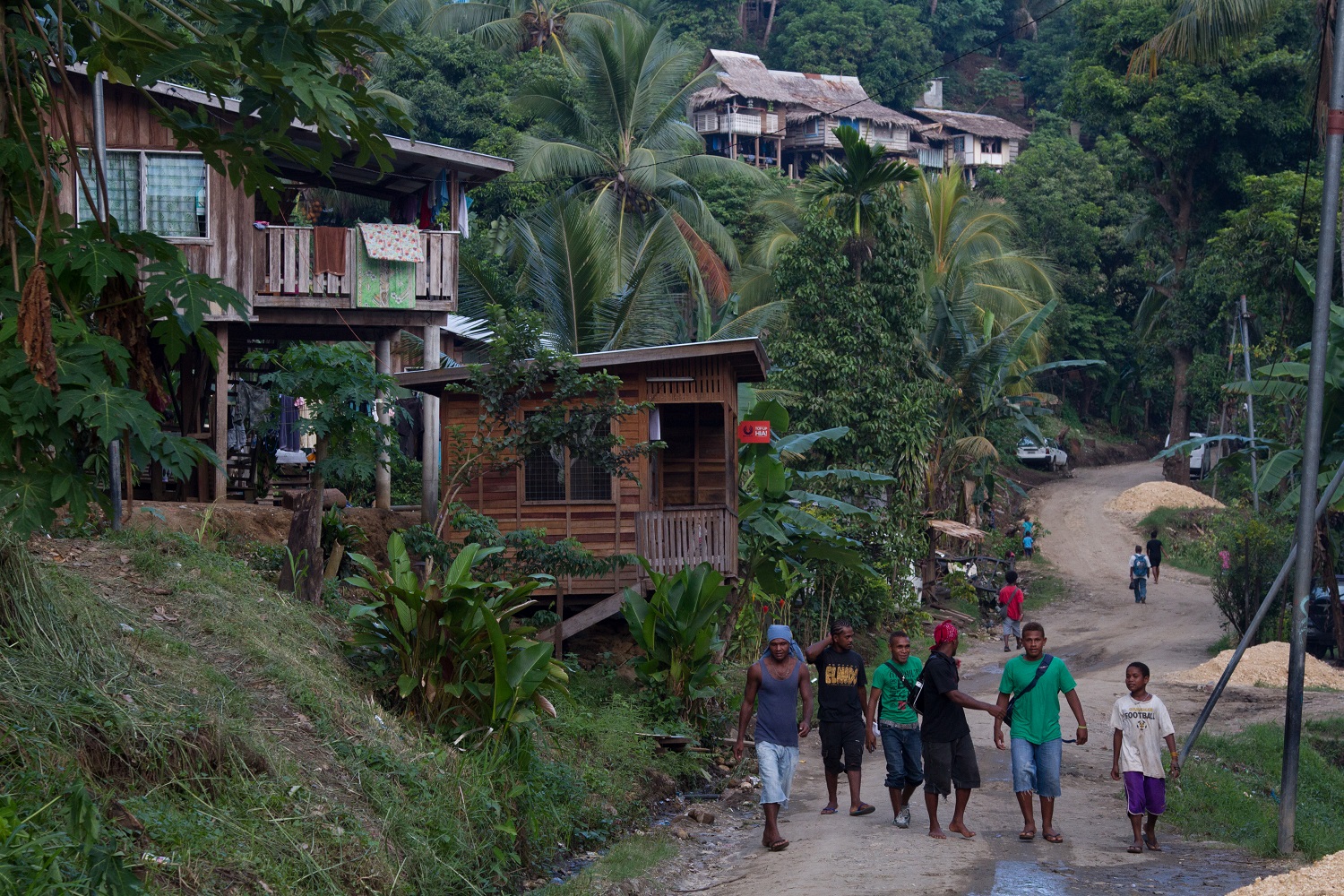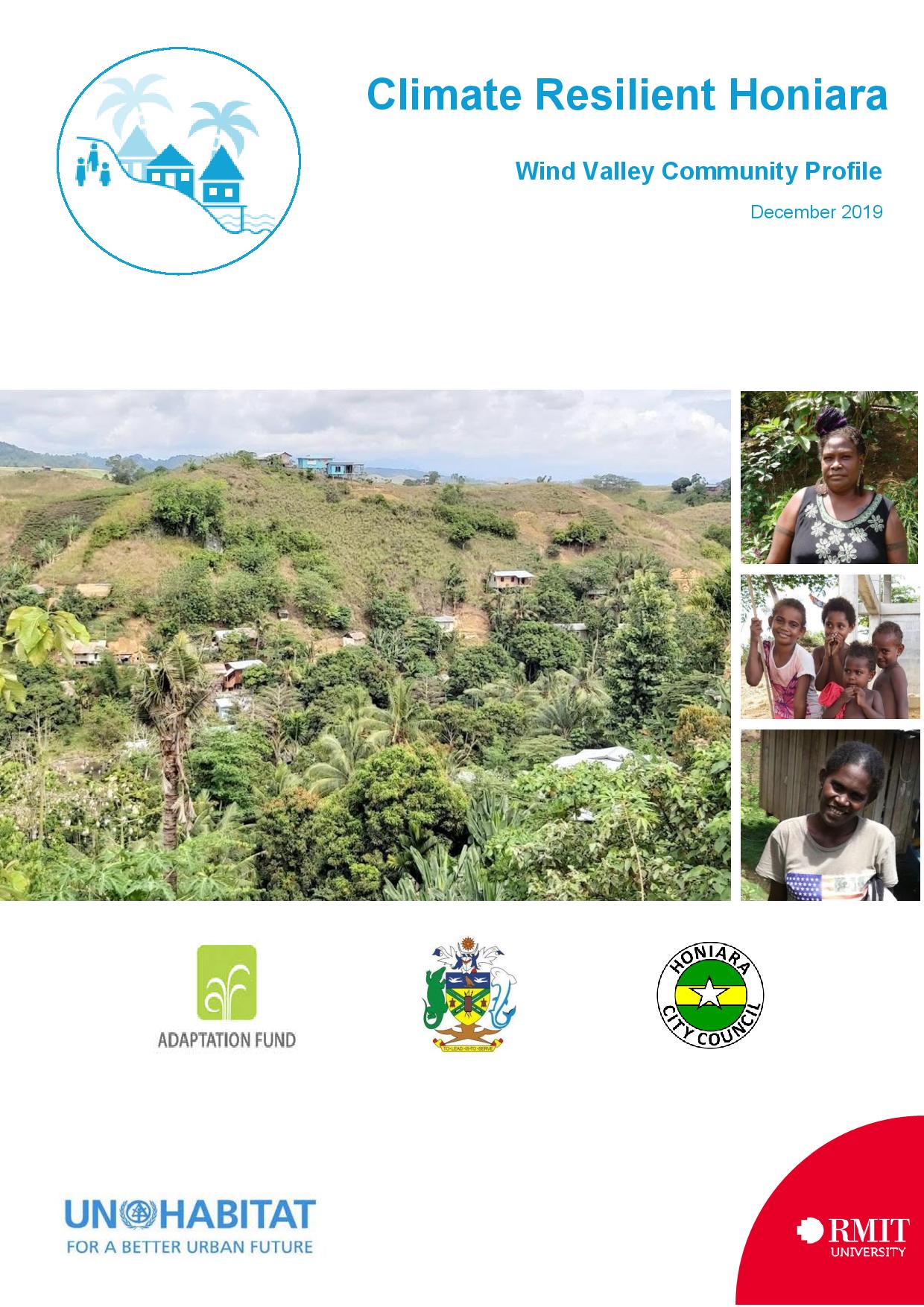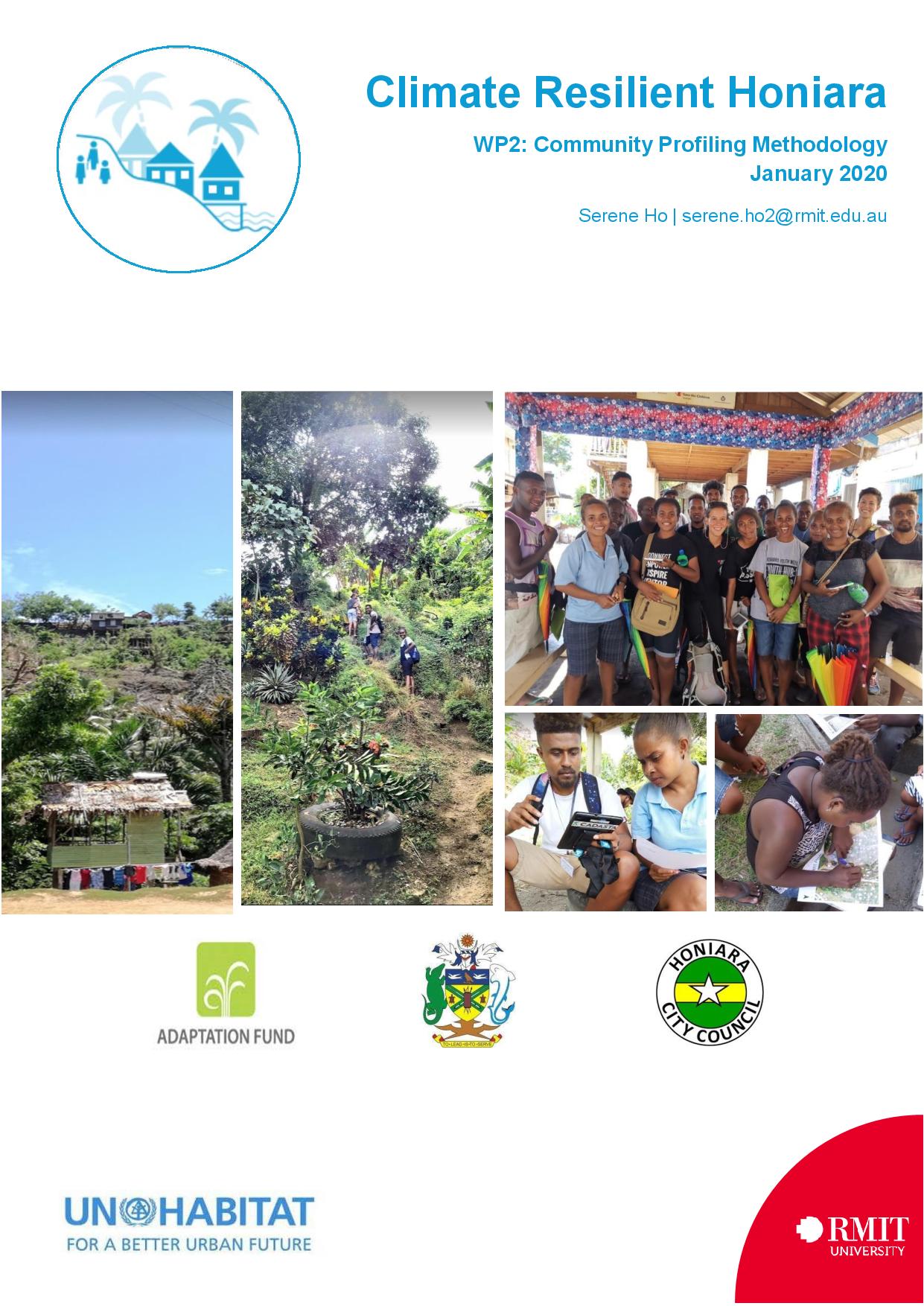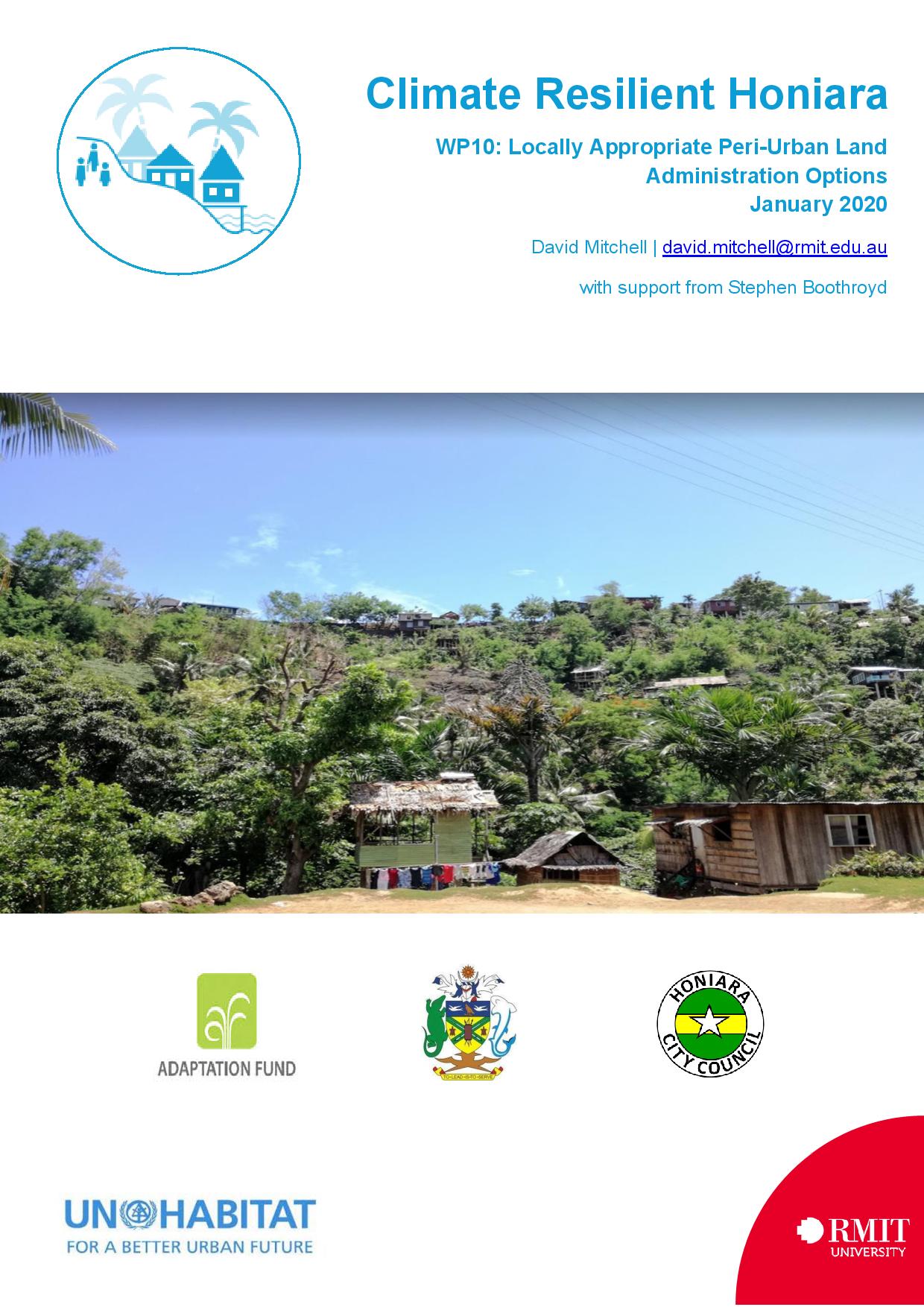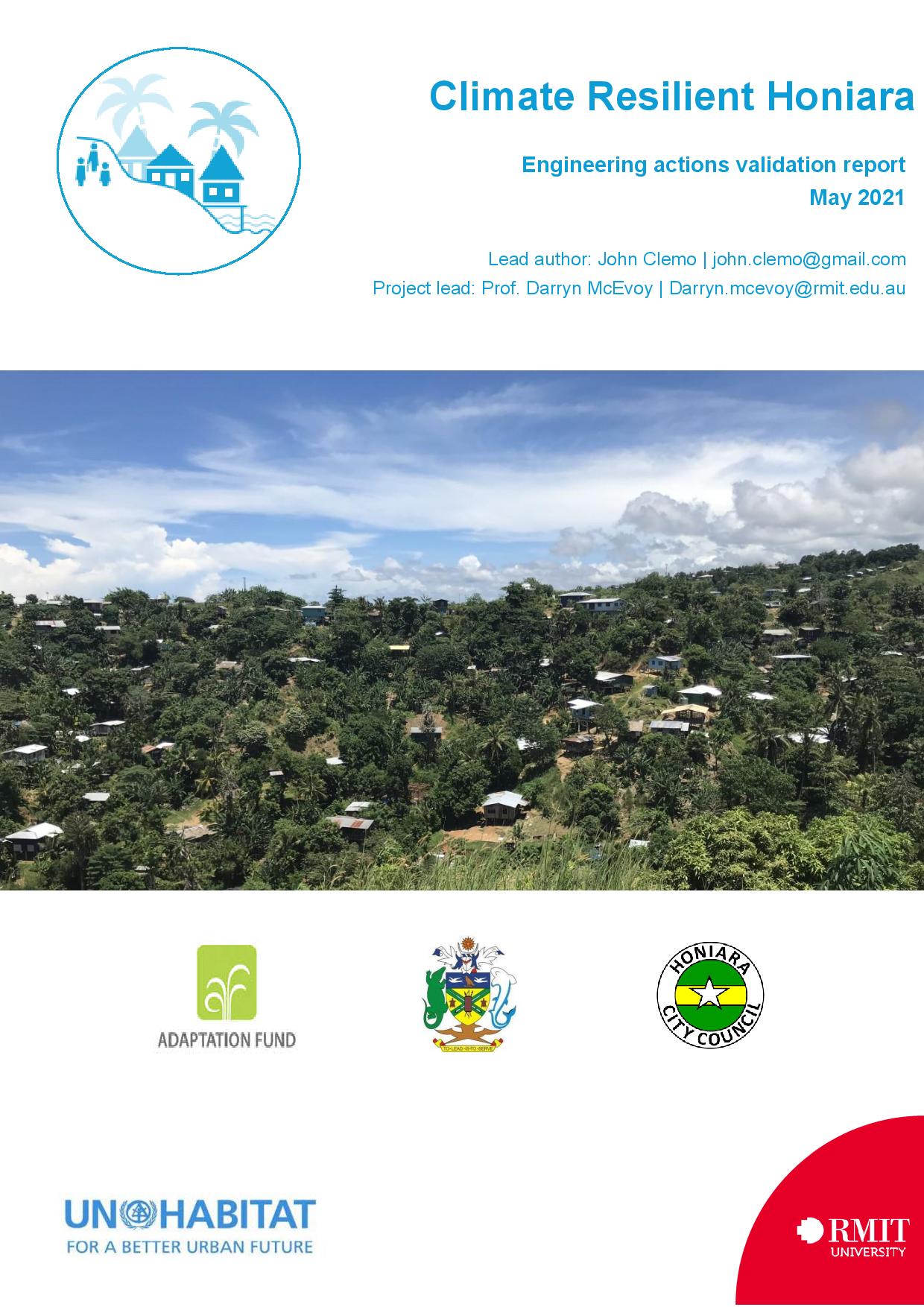Background
Solomon Islands is considered as one of the world’s fastest urbanizing countries. The capital, Honiara, located on the northwestern coast of Guadalcanal, is the major centre of economic activity and as such, attracts increasing numbers of youth and adults from other islands seeking employment. The city has a growing urban footprint and is the only settlement exceeding 10,000 inhabitants. This large movement of people is overstretching the urban development and planning capacity of government entities, resulting in rapid unplanned urbanization and associated growth of informal settlements and a lack of adequate infrastructure. The city’s urban development challenges are aggravated by natural disasters and climate change.
Cities and Climate Change Initiative, Honiara Climate Change Vulnerability Assessment Report was developed in response to a request for assistance by the Solomon Island Government through the Ministry of Environment, Climate Change, Disaster Management and Meteorology and the Ministry of Lands, Housing and Survey in response to the devastating floods of 2014.
Subsequently the Honiara Urban Resilience and Climate Action Plan was developed to provide pathways to enhance the resilience of the city and its inhabitants to current and future climate impacts and natural disasters, putting a particular focus on pro-poor adaptation actions that involve and benefit the most vulnerable communities in the city and a special emphasis on youths, women, girls, the elderly, and people with disabilities.

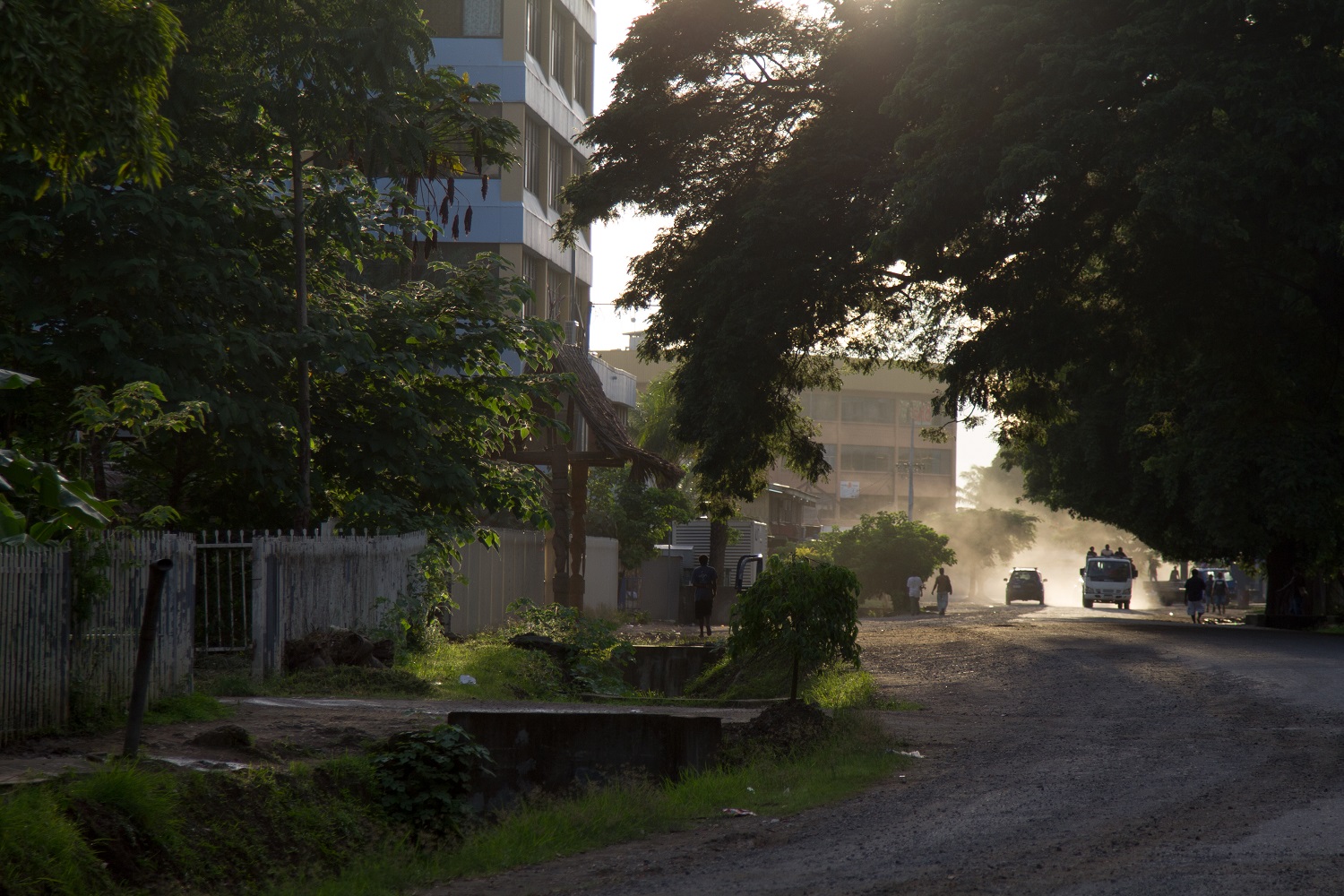

Objectives
The Climate Resilient Honiara project supports the implementation of the Honiara Urban Resilience and Climate Action Plan and engages across all scales with resilience actions and capacity building at city, ward, and local community levels. A combination of actions and capacity building across spatial scales ensures that actions are not stand-alone but are integrated into a resilience action plan for the city and hence more likely to be sustainable in the longer term. Important outcomes of this multilevel approach are improved institutional arrangements and working relationships between all stakeholders involved.

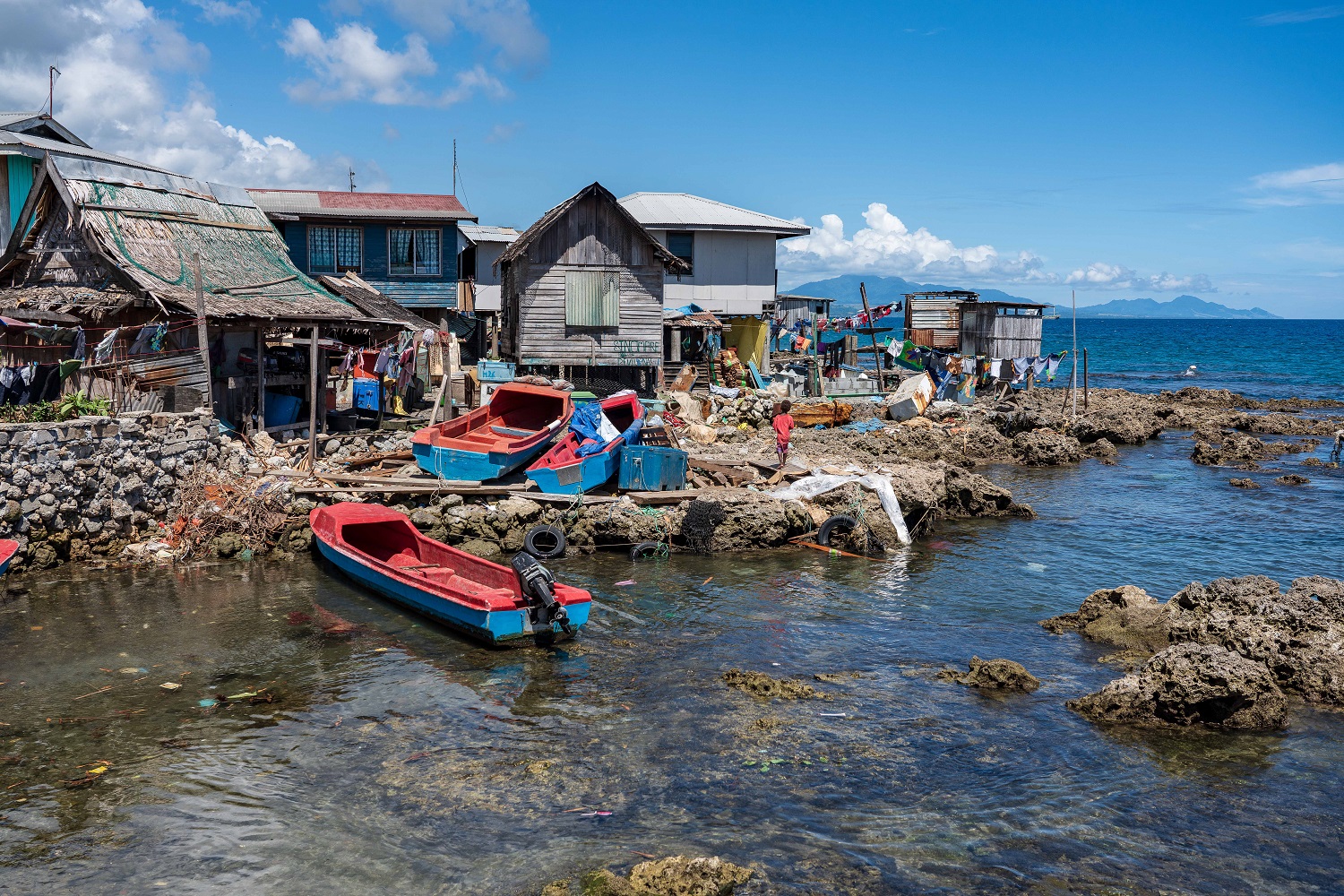

Activities
Community Level
• Strengthening local awareness and ownership of adaptation and climate risk reduction processes, capacity to locally implement, and increased adaptive capacity through community level actions.
• Community level capacity strengthening for local awareness and ownership of adaptation and climate risk reduction processes and capacity to locally implement.
Ward Level
• Strengthening local awareness and capacity to implement, increasing ecosystem resilience and adaptive capacity through ward level actions
• Reducing local risks associated with climate-induced socioeconomic and environmental losses through ward level capacity strengthening
City Level
• Reducing risks associated with climate-induced socioeconomic and environmental losses through citywide governance and capacity strengthening.
Knowledge Management
• Raising awareness, safeguarding project transparency, and ensuring access to project results for replication through Knowledge Management, Advocacy and Communications
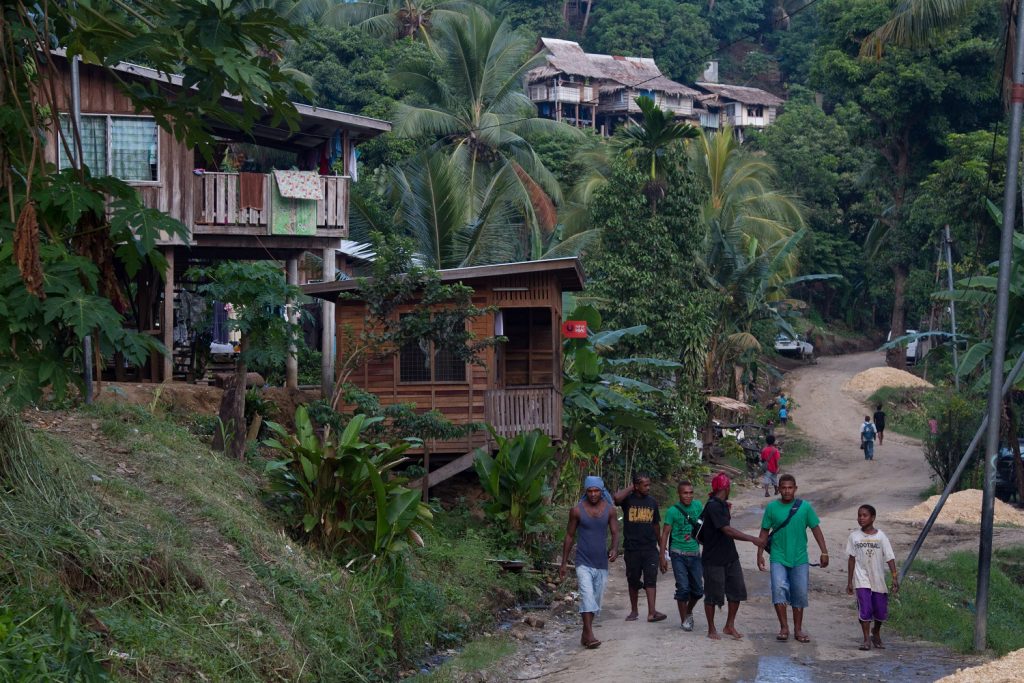

Donors and Key Stakeholders
Donor:
Adaptation Fund
Relevant Links/Publications
Climate Change Comics drawn by the Local Youth:
Urban gardens, climate change and local food security
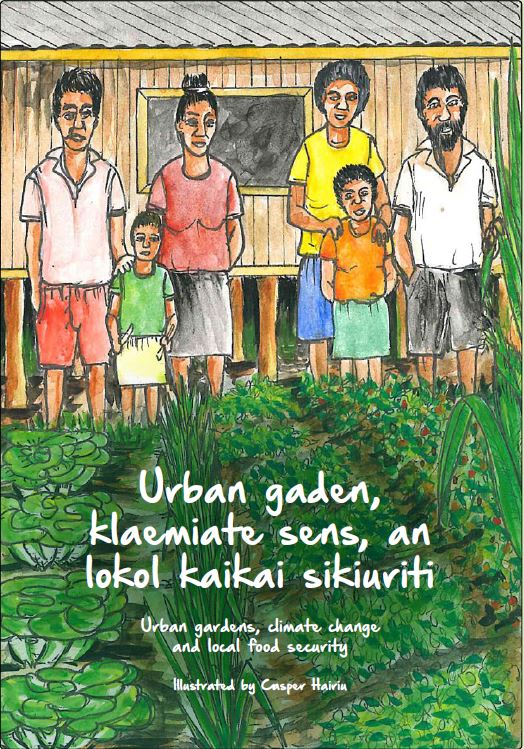
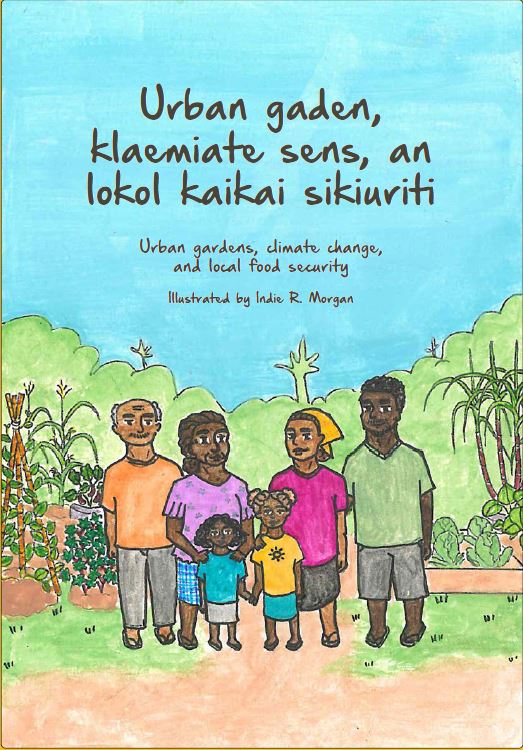
Disaster Resilient Housing
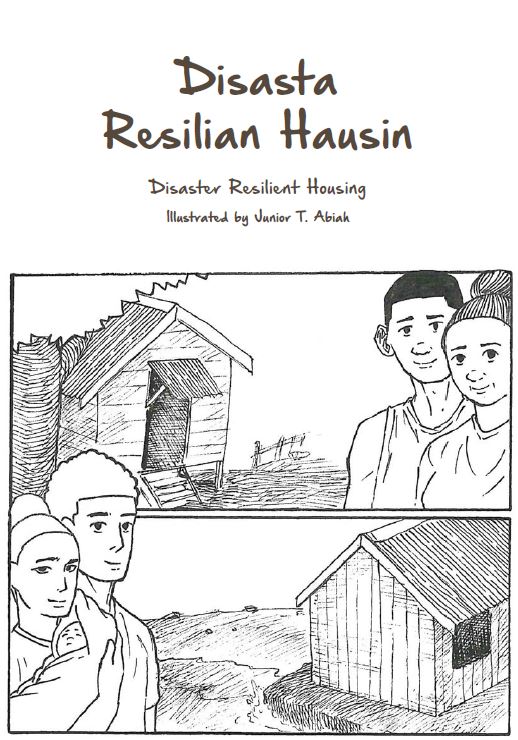
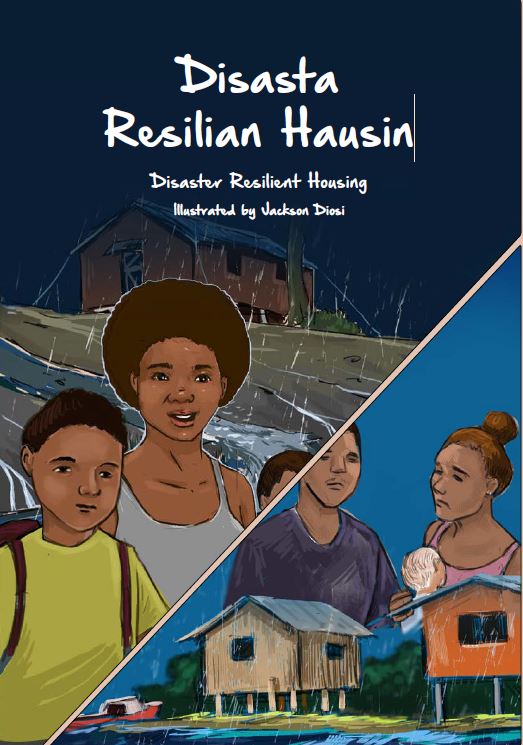
Climate Resilient Honiara project reports (UN-Habitat):
